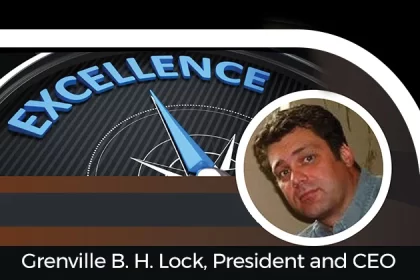Running a casino and running a corporation may not be all that different. To be successful in either, there is a need for careful calculation, risk assessment, and an understanding of human behavior. The gaming industry has perfected these skills over decades, generating record revenues year after year through strategic decision-making that many business leaders could apply to their own operations.
Removing Friction to Win Customers
The gaming industry has learned that every extra step in the customer journey can cost potential customers. Many online casinos are now removing traditional identity checks altogether, following the no-KYC model and letting users sign up with just an email address. According to Cardplayers insights, there are quite a number of no-KYC casinos, which means there’s real demand for faster, easier access. These platforms are all cutting out unnecessary checks to make registration quick and easy.
For CEOs, the lesson is simple. Every small hurdle in the process adds up; the extra form to fill, the extra click to make, the pause to verify something again. A long registration process can make people lose interest quickly.
Understanding the House Edge in Business
Casinos work with a built-in advantage called the “house edge.” It means they don’t have to win every bet; they just need the math to play out over time. The same principle applies to corporate strategy. A company doesn’t have to succeed with every product or campaign. What matters is that the overall system produces consistent returns.
The gaming industry proved this approach works, with the U.S. market alone generating over $44 billion in the first seven months of 2025 through consistent application of mathematical principles.
This mindset removes emotion from decision-making. When leaders track average success rates and measure potential returns, they can predict long-term performance more accurately. Building a structure that wins more often than it loses is better than chasing perfection. This is the lesson here for business leaders.
Risk Management Through Diversification
A walk through any large casino shows the power of diversification. There are slot machines, poker tables, restaurants, shows, and hotel rooms, all designed to appeal to different groups. When one area slows down, another picks up. When there are market changes and seasonal shifts, this mix-up can help in keeping revenue stable.
Business leaders can use the same idea when managing their products, markets, or revenue sources. A company that depends too much on one product or customer group risks major setbacks when the market changes. Spreading resources across different areas builds stability and cushions the impact of sudden disruptions.
Using Data to Make Better Decisions
Casinos are data-driven by design. They track every and anything; when customers play, which games attract the most attention, and how promotions affect behavior. Every change is tested, measured, and refined. This attention to data keeps operations efficient and profits steady.
Many companies collect plenty of data but don’t use it effectively. Casino operators, by contrast, have built a culture where data informs every step. They test small, scale what works, and drop what doesn’t. Seeing how popular online casinos are shows how this mindset pays off. Operators saw players shifting toward digital experiences early and invested accordingly, long before others caught on.
Customer Experience as a Competitive Advantage
A player’s experience matters more than outcomes, and casinos understand this. Most players don’t always win big, but they still go back to play because of how the environment makes them feel. For physical casinos, the lighting and music can make them feel excited. For online casinos, the speed of transaction or how responsive the customer service is can keep them coming back.
This same thing can apply to any business. Zippia’s 2023 research on customer experience statistics reveals that companies that focused on CX increased revenue by 80% and achieved 4-8% higher than their competitors.
More than anything, customers will always remember how they felt when using your company’s products or services. Great customer service and a helpful team can make all the difference between a one-time buyer and a loyal customer.
Loyalty Programs That Keep People Engaged
Loyalty programs are another casino invention worth studying. They do more than reward spending; they collect valuable data and make customers feel recognized. Points, tiers, and exclusive benefits give people reasons to return. More importantly, the rewards feel meaningful at every level, not just for the biggest spenders.
Many corporate programs fall flat because they’re too transactional. Casinos get loyalty programs right because they understand what makes people feel seen. When customers see that they matter, that their actions count even in small ways, and get them rewarded, they naturally stick around.
In Summary
The biggest lesson casinos can teach is about time. They don’t plan for the next quarter; they plan for the next decade. Every big resort or online platform they build is meant to last. They train people who understand the system, and they set things up so that money keeps flowing even when no one’s watching every move.
A lot of businesses, on the other hand, rush to show quick results. Investors want fast growth, and leaders often chase it. But the companies that really last play the long game.










